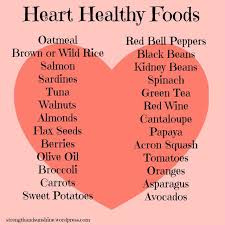
Diagnosed with SMM, SPB, or MGUS?
Learn how you can stall the development of full-blown Multiple Myeloma with evidence-based nutritional and supplementation therapies.
Click the orange button to the right to learn more.
- You are here:
- Home »
- Blog »
- Pre-Myeloma »
- MGUS to Myeloma- Obesity, Inflammation?
MGUS to Myeloma- Obesity, Inflammation?

“…based on 29 cases that progressed to MM or other LP diseases later in life, our study found midlife obesity to be a risk factor for progression among individuals diagnosed with MGUS.”
Hi David, I’ve been reading a lot about that study they did in 2016 about obesity creating a higher risk of Monoclonal Gammopathy of Undetermined Significance (MGUS) progressing to MM. I’m obese but I’ve lost 70lbs. I’ve got another hundred to go about.
My weight has fluctuated my whole life but I was only really heavy for the past 2.5 years. I was depressed and put it on very fast.
Can getting down to a healthy weight decrease my chances of progressing or is the damage done? I’m also eating the diet Dr. William Li recommends in his book which I’m reading now and I’m taking
- Curcumin,
- D3
- K2,
- Green tea Extract
and a bunch of other Standard Process supplements that I’ve taken forever OPC, Catalyn, Cardio Plus, Cyruta, and Omega-3 fatty acids.
I’m exercising daily and as I stated eating a super clean angiogenic diet. My spike is 0.3. Rudy
- frequent, moderate exercise,
- losing weight,
- eating anti-angiogenic foods (I’m also reading “Eat to Beat Disease” by Dr. Li)
- anti-MM supplementation (curcumin, D3, K2, green tea extract, omega-3 fast acids)
- MM Survivor
- MM Coach
- Director PeopleBeatingCancer
Recommended Reading:
- MGUS, AutoImmune Hepatitis and Hypothyroidism- Are they Related?
- Multiple Myeloma-Green Tea-Mortality, CVD and Stroke
- Sleep as cancer therapy- 8 Natural Remedies That May Help You Sleep
Unfortunately, storage of energy causes an inflammatory reaction. The explanation lies in the close connection between the body’s immune system, energy conversion and the way in which we store energy….”
Obesity and risk of monoclonal gammopathy of undetermined significance and progression to multiple myeloma: a population-based study
“Our results suggest that high BMI during midlife is associated with an increased risk of progression from MGUS/LC-MGUS to MM and other LP diseases later in life. This was not explained by known risk factors for progression. Previous studies have indicated that obesity might have a role in the etiology of MM.21,22,25,26
Recent pooled analysis of 20 prospective studies found that waist circumference is a risk factor for MM mortality and that BMI in early adulthood plays an important role in myelomagenesis.25
Additionally, on the basis of the available data, WHO recently concluded that there now is sufficient evidence behind the association between body fatness and MM.6
To date, only 1 study has examined the role of obesity in the progression of MGUS to MM. A study on a cohort of US veterans within the Veterans Health Administration system found an increased risk of MM to be associated with both overweight (HR, 1.55; 95% CI, 1.16-2.06) and obesity (HR, 1.98; 95% CI, 1.47-2.68) at MGUS diagnosis.42
We thus speculate that the observed risk of MM in individuals with obesity is not because of increased risk of MGUS, but rather that they have similar MGUS prevalence but a higher risk of progression…
In conclusion, in this Icelandic population-based cohort study, obesity is not associated with MGUS or LC-MGUS.
However, based on 29 cases that progressed to MM or other LP diseases later in life, our study found midlife obesity to be a risk factor for progression among individuals diagnosed with MGUS/LC-MGUS.
This study provides evidence that obesity might be the first modifiable risk factor for MGUS/LC-MGUS progression, but more studies, both large-scale population-based studies and clinical trials, are needed for better understanding of the etiology of MGUS/LC-MGUS and MM…”



